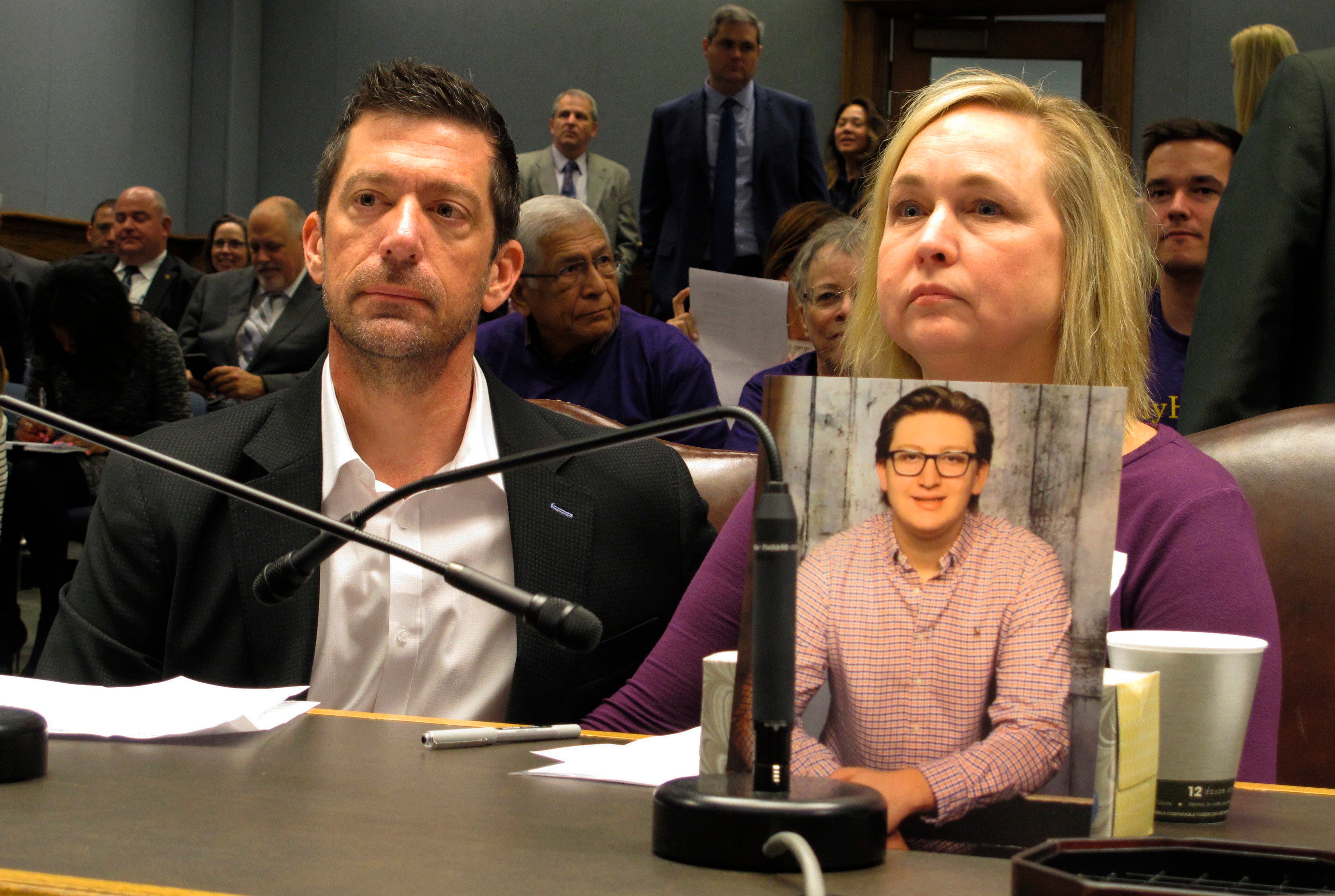Family of LSU fraternity pledge who died issues powerful anti-hazing message after $6.1m award
Max Gruver died from alcohol poisoning and aspiration after 2017 incident
The family of a student who died from an alcohol-fueled hazing ritual say that a $6.1m damages award can help them end the practice on campuses.
Max Gruver had been a student at Louisiana State University for a month in 2017 when he died of alcohol poisoning and aspiration after a hazing ritual at the Phi Delta Theta fraternity house.
A court was told how the 18-year-old from Roswell, Georgia, took part in the ritual that required pledges to take three to five-second chugs from a bottle of a spirit called Diesel.
An autopsy found that Gruver had a blood-alcohol level of 0.495 per cent, more than six times the legal driving limit in the state.
Gruver’s parents, Rae Ann and Stephen Gruver, were in court in Baton Rouge, Louisiana, last week when the verdict was returned.
One of the family’s attorneys, Don Cazayoux, says that it bolsters the family’s campaign against hazing.
“The first message is, don’t do it because you could hurt someone, you could kill someone,” Mr Cazayoux told NBC News.
Gruver’s parents had already reached confidential settlements with LSU, Phi Delta Theta fraternity and at least 10 other fraternity members.

In 2019, Matthew Naquin, of Fair Oaks Ranch, Texas, was convicted of negligent homicide and sentenced to five years in prison. A judge suspended everything but two-and-a-half years.
Ryan Isto and another fraternity member, Sean Paul Gott, pleaded no contest to a misdemeanour charge in connection with the criminal case and were sentenced to 30 days in jail.
“Although the verdict does not — and cannot ever — repair that loss, it is another important step in our mission to end hazing,” the family told The New York Times in a statement.
“We are grateful that the jury understood that Max and his pledge brothers had no real choice and were not at fault for the hell they had to endure. And, significantly, through its verdict, the jury put to rest the notion that merely being a bystander to hazing absolves a fraternity member of responsibility.”
Join our commenting forum
Join thought-provoking conversations, follow other Independent readers and see their replies
Comments


Bookmark popover
Removed from bookmarks